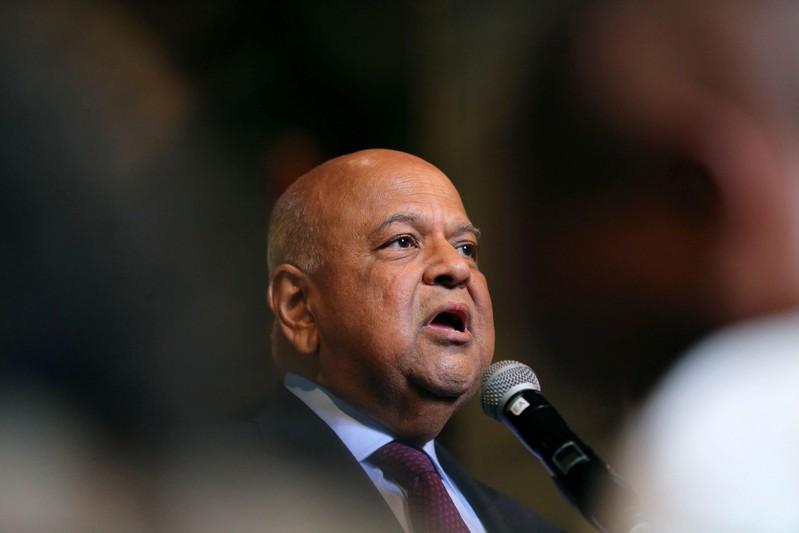By Mohammad Issack Santally
Associate Professor in Educational Technology
University of Mauritius
On the occasion of the new year 2019, the Honorable Prime Minister of Mauritius, Pravind Kumar Jugnauth addressed the nation and announced free tertiary education at undergraduate level for all Mauritians studying in the public institutions of the country. While the population in general reacted favorably to this landmark announcement, there is also skepticism emitted by members of the civil society including political observers, academics and economists. Mauritius is well known for its successful education system. Free education in Mauritius was established by the Government in 1976 which many at the time criticized as an electoral measure while sympathizers of the then Government characterized the initiative as a visionary measure to shape the future of the country. 42 years later, indeed free education has proven to be the engine for the socio-economic progress of Mauritius – a country whose main asset is its manpower and intellectual capital.
Free Tertiary Education is not in itself a novel concept. Since 1977 the University of Mauritius was technically delivering undergraduate courses at no cost to those who obtained a seat. Students were not charged tuition fees but nevertheless, had to meet general fees which was around Rs 4000 in the late 1990s and that gradually increased to Rs 27200 in 2018. It is still very affordable from a comparative point of view, but for lower middle class and for those at the bottom of the ladder, access to higher studies might seem a distant dream for them despite other Government measures such as free transportation for students since 2005. The University of Mauritius, for a long period of time since its creation until the early 2000 was the only public university of the country and the preferred institution for the majority of Mauritians who did not have the means to study abroad. In 2018 the University had around 9700 registered students.
More than 50 years have elapsed since the establishment of the University of Mauritius and the higher education landscape in the country is now a completely different one with a number of private universities such as Amity University, Middlesex University and Curtin University operating branch campuses and four public Universities as well as the Polytechnics. Free tertiary education was up to now only dispensed at the University of Mauritius while the other public institutions charged tuition fees, until the announcement of the Prime Minister in his new year’s speech. Given that we are in an election year, history repeats itself with many of our compatriots again seeing this to be an electoral measure which will further increase public debt and the number of graduates who might well turn up to being unemployed, therefore leading to an increased level of frustration among the youth. These fears are not exaggerated and has been echoed in South Africa when Jacob Zuma announced in 2017, his plans for free higher education in Africa, to those families having income below a threshold level. But there is the other side of the coin, and if we look in some more detail, a sea of opportunities presents to us. Could this be the next revolutionary measure to finally help the country to achieve the much-awaited high income status? Could it finally contribute in the long term to close the inequality and the gap between the rich and the poor? Could this accelerate the development of the country into a knowledge society? Could this measure along with the key changes in the regulatory framework imposed by the Higher Education bill be a signal of a completely redefined and improved higher education system in Mauritius?
Access to higher education is key to the transformation and transition from information societies to knowledge-based economies. It is generally agreed that Education, ICTs, Science, Technology and Innovation are the key pillars for knowledge society building. The Mauritian government has been emphasizing on these key sectors consolidating the regulatory framework and policies with respect to innovation and ICTs through institutions like the Mauritius Research and Innovation Council under the Ministry of Technology, Communications and Innovation. The move to provide free tertiary education comes to complete the cycle of free education from primary and secondary through the extension of the government subsidies to the other public institutions. At the same time, by covering the polytechnics the Government demonstrates its commitment and high resolve to address the gaps and dire needs in the high-skill technical sector. Having such manpower who are industry 4.0 ready, will no doubt attract more investors and global businesses in the country and consolidate the national intellectual capital.
To the question of whether such a measure will help address inequalities between the rich and the poor, only time will tell us. Free education in Mauritius has lifted many families out of poverty, although the education system has often been criticized at the same time, as the root cause for high percentage of drop-outs at primary level as in many sub Saharan African countries. There has been many critics of the South African policy to provide free higher education including the labeling of the so-called inequality reduction as a myth. Indeed, many observers would have preferred an equity-based approach where targeted support could have been provided to mainly vulnerable and lower income groups. Given that access to public Universities will still be highly competitive and that places are limited, the main issue is that of the unfair advantage of the richer families on the poor at secondary level due to their financial means resulting in better achievement in examinations at the end of the secondary cycle.
Another important question that some experts and thought-leaders bring to the table time and again is whether there is a real need for four public universities in Mauritius. In a recent radio emission consisting of the key actors of the tertiary sector, the issue of duplication of programs and resources by the Universities was raised. For instance, the University of Technology, Mauritius created in the year 2000-2001 to offer specialized technology-related courses, had over the years created a school of Business and Management, School of Tourism and Sustainable Development and even a School of Health Sciences. It has about 3000 students. Similarly, for the Open University of Mauritius, many courses are offered on full-time mode targeting school leavers in areas where the University does not necessarily have in-house competencies or faculty members. The Open University has had a steady increase of its student population with around 4000 students in 2018. On the other hand, the latest addition to this league is the “Université des Mascareignes” established in 2012 through a merging of two “polytechnics” of the time, namely the “Institut Supérieur de Technologie” and the Swami Dayanand Institute of Management. The University has a Faculty of Management, a Faculty of Information Technology and a Faculty of Sustainable Development and Engineering with a student population of around 1000. Today there is competition between public universities while they should be working within a broader framework supporting the broader Government vision in a coherent manner. They need to adopt a “co-opetition” mindset over a competitive one. The term “co-opetition” is used here to define a scenario where they have to collaborate to achieve the shared government vision but engage in healthy competition to perform and continuously improve to achieve the set and agreed benchmarks and targets.
A key trend has been observed in Europe where a wave of university mergers has been experienced, as these institutions embark on increasing ranking, foster innovation and research to keep control on a bigger share of the higher education market. Researchers and observers argue that University mergers make competition tougher for smaller and less renowned institutions in the fight for sustainability and survival. As a result, smaller universities are struggling to survive. The Government in Mauritius has, on this note, been quite proactive to start a rethinking and a reform of the higher education sector, starting with the introduction of the Higher Education Act as an overarching framework to regulate the sector in its entirety. The idea of a harmonization and streamlining of the roles of the public universities as well as pooling of resources has been on the agenda for quite some time. While the intention is there, in practice it becomes a bit more complex. For e.g. which University will be the reference institution for law and management or for ICTs when all of the four universities are running these courses. Since the Universities are vested by virtue of the acts and statutes with awarding powers it will be difficult and at the same time, not correctly perceived if the higher education funding agency were to dictate which courses have to be run by which university. The idea of harmonization, streamlining and pooling of resources becomes much more relevant with free education. A few questions though oblige. If all students in public universities were to get free education, how does one go about applying and getting a seat in one university or on his or her programme of choice? What are the provisions to ensure that the students get same quality of education, facilities, services and learning experience? What happens if a student applies at two different universities on a full-time course and a part-time course respectively and gets a seat on both programs? How do Universities talk to each other within such a setting? Is it time for a UCAS-like system of central application as in the UK and then allocation of seats to each institution/programme on a merit-based or other pre-defined criteria?
It is clear that the Higher Education Sector in Mauritius is in a transformative and transitional period of its existence. The foundations are being laid through the provision and harmonization of free public higher education provision and the implementation of a new legislative framework. Reflecting further, it makes sense then to envisage in the ideal situation a merger of the four public universities into The National University of Mauritius, comprising of a number of autonomous affiliated institutes of Engineering, ICTs, Law and Management, Education & Teacher Training, Open and Lifelong Learning, Social Sciences, Agricultural and Ocean Sciences and finally Medicine and Health Sciences. Ultimately the awarding body is from The National University of Mauritius. The Government by so doing will further achieve financial efficiency, and the much-desired harmonization, streamlining, pooling of resources, and internationalization of the Mauritian Higher Education system, supported a robust regulatory framework and quality assurance system to enhance the position of Mauritius as a knowledge hub for Africa.


